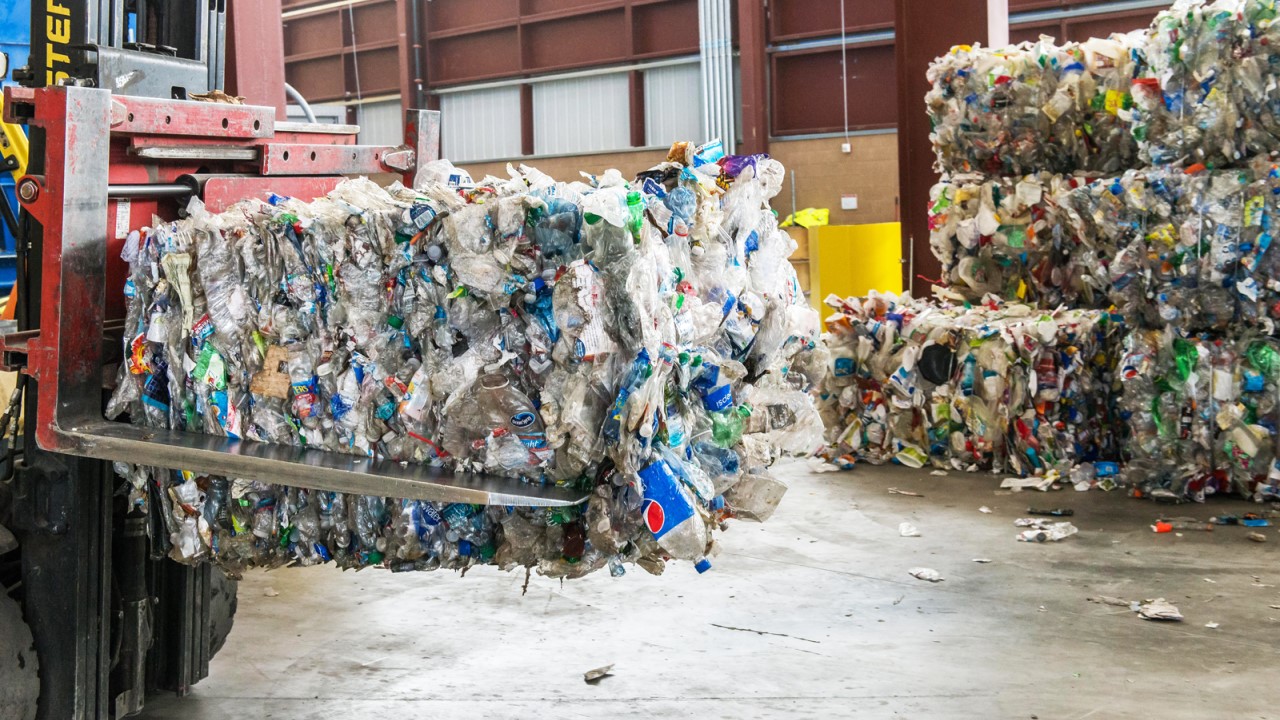
Sponsored content powered by Republic Services
While many of us have the best intentions when it comes to recycling, we aren’t always doing it right. Many residents will toss items in their recycling bin, hoping they can be recycled, whether they can or not. This is referred to as “aspirational recycling” or “wish-cycling.” Unfortunately, this type of mindset can be detrimental to municipal recycling programs. Incorrect items can end up contaminating perfectly good recyclables and can potentially damage the equipment in recycling facilities and reduce recovery rates—or worse, cause harm to employees.
According to a recent survey Republic Services conducted, 73% of Americans consider themselves an expert or good at recycling, yet 61% incorrectly believe flexible plastics, like plastic bags, could go in curbside recycling bins. There are easy rules to remember to help your residents improve their recycling habits.
Know what to throw.
There are several materials that are excellent candidates for recycling because of their ability to be remade into new products. Focus on cardboard, paper, aluminum cans, and plastic bottles and jugs to make the most impact.
Empty, clean, and dry.
These are the three magic words of recycling. Every item in your recycling bin should be free of residual food and liquid—for example, a ketchup bottle. When items like that ketchup bottle still contain residue, they can contaminate other more fragile recyclables like paper or cardboard, and those contaminated materials could end up in the landfill. Give your recyclable containers a quick rinse, then tap out the excess water, leaving no more than a teaspoon. And don’t forget to put the cap or lid back on those bottles!
When in doubt, throw it out.
There will be times when you just aren’t sure if something should be recycled or not. It’s best to toss the item in the waste bin when that happens. For example, a pizza box is made of cardboard, but if grease and cheese are stuck to the box, it can’t be recycled. Or, take your recycling knowledge one step further and remember: When in doubt, find out. Check with your local service provider for recycling do’s and don’ts.
Don’t bag it.
While it might seem to make sense to place recyclables in a plastic bag, it’s a big no-no. Materials must stay loose so they can easily be sorted and separated at the recycling center. Plastic bags wrap and tangle around the sorting equipment causing jams and inefficiencies. Instead of collecting your recyclables in a bag, try collecting them in a basket that you can empty into your curbside cart.
Not all plastics are created equal.
Flexible plastics should never be placed in the recycling bin. Swapping plastic grocery and produce bags for reusable bags is a simple way families can cut down on the amount of waste they make. When it comes to recycling plastics, you should only recycle plastic bottles, jugs, and tubs.
Don’t confuse reuse with recycling.
All too often, we see well-intentioned recyclers blur the line between reuse and recycling. We see so many items come to the recycling center that don’t belong in your curbside recycling bin. Just because you no longer have spare time for your bowling league doesn’t mean your old bowling ball or shoes belong in your recycling bin—but you’d be surprised how many end up there. For an item to be reused, it must be donated to a secondhand store.
While recycling doesn’t need to be difficult, there are several myths or misconceptions that lead to confusion among residents:
Myth #1: Plastic doesn’t really get recycled. Fact: Plastic bottles, jugs, containers, and tubs are widely accepted for recycling in communities across the country, and there is strong demand for these materials.
Myth #2: Anything plastic can go in your recycling bin. Fact: Know what to throw. Generally, plastic bottles with necks or handles, plastic containers, and tubs are recyclable in your curbside container.
Myth #3: Plastic grocery bags can be recycled curbside. Fact: Plastic bags (and other flexible plastics) require special handling to be recycled and should not go in your curbside container. Return them to collection bins at the grocery or big-box store.
Myth #4: You should bag your recyclables. Fact: Recyclables should never be bagged. Place them loose in your recycling bin. Flexible plastics like plastic bags can wrap and tangle around equipment at recycling facilities, causing major delays or damage.
Myth #5: Anything with a recycling symbol should go in your recycling bin. Fact: The “chasing arrows” symbol generally identifies the type of plastic used to make a container or sometimes indicates that an item contains recycled content, but it does not mean that an item is recyclable. Always check with your local provider on what is accepted in your curbside recycling bin.
Myth #6: Pizza boxes and foam takeout containers are recyclable. Fact: These items are often mistakenly placed in the recycling bin, but unfortunately, they are not recyclable. Once a pizza box is soiled with grease and cheese, the cardboard is no longer viable for recycling. If the top half of your pizza box is oil-free, you can tear it off and recycle that part. All foam products, from takeout containers to packing peanuts, should never be thrown in your recycling bin.
Myth #7: Old clothes, toys, and furniture can be recycled. Fact: These are items that should go to a donation center instead. Clothing and toys can be reused, but not recycled curbside. If the clothes are too worn, throw them out or use them as rags. When it comes to furniture, items that are too large to fit in your trash container are considered bulk waste. If the furniture is too old or used to be donated, check with your local provider to see if they can help you dispose of it properly through bulk collection.
Myth #8: You don’t need to rinse your recyclables. Fact: Food and beverage containers must be rinsed free of residual food and liquid. If they are not rinsed out, the residual material can spill on paper and cardboard, deeming it unfit to be recycled. Only clean, dry paper and cardboard can be recycled.
Myth #9: Batteries and electronics are safe to go into home recycling. Fact: Improper disposal of e-waste and batteries is quite common and can be extremely dangerous. Hundreds of preventable fires are caused each year by the improper disposal of battery-powered electronics and batteries themselves. Never discard rechargeable electronics or batteries in your recycling bin or trash. Instead, consider donating old cell phones to organizations like Cell Phones for Soldiers or the 1Million Project, or look into our mail-back recycling program.
Recycling is fundamentally important when it comes to living a sustainable lifestyle. To have the most impact, though, we need to do it properly. While you may feel guilty throwing something away, you could be doing more harm than good if you incorrectly place it in the recycling bin. Remember: when it comes to recycling it isn’t about how much you recycle but how well you recycle. Don’t be a wish-cycler!
When we talk about sustainability and waste, there are often three R’s associated with this connection: reduce, reuse, and then recycle. While recycling is a critical piece of the sustainability puzzle, it isn’t the silver bullet. We all must do our part to create a sustainable world now and for future generations.

JEREMY WALTERS serves as a sustainability ambassador for Republic Services, a leader in the environmental services industry. He helps to develop and execute recycling education programs and serves as a spokesperson for Republic’s nationwide Recycling Simplified education campaign.
REPUBLIC SERVICES, INC. is a leader in the environmental services industry. The company’s industry-leading commitments to advance circularity, reduce emissions, and decarbonize operations are helping deliver on its vision to partner with customers to create a more sustainable world. For more information, please visit RepublicServices.com.
New, Reduced Membership Dues
A new, reduced dues rate is available for CAOs/ACAOs, along with additional discounts for those in smaller communities, has been implemented. Learn more and be sure to join or renew today!
